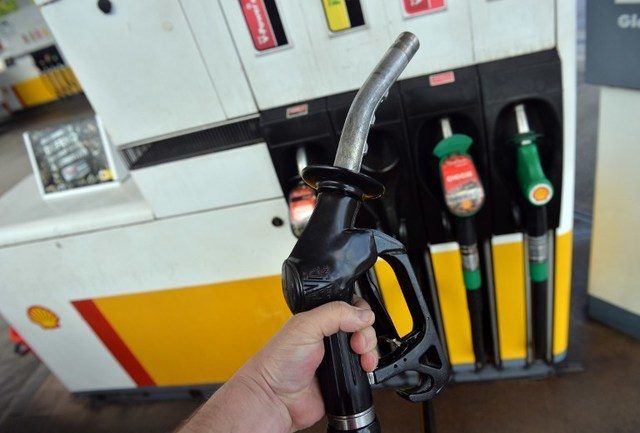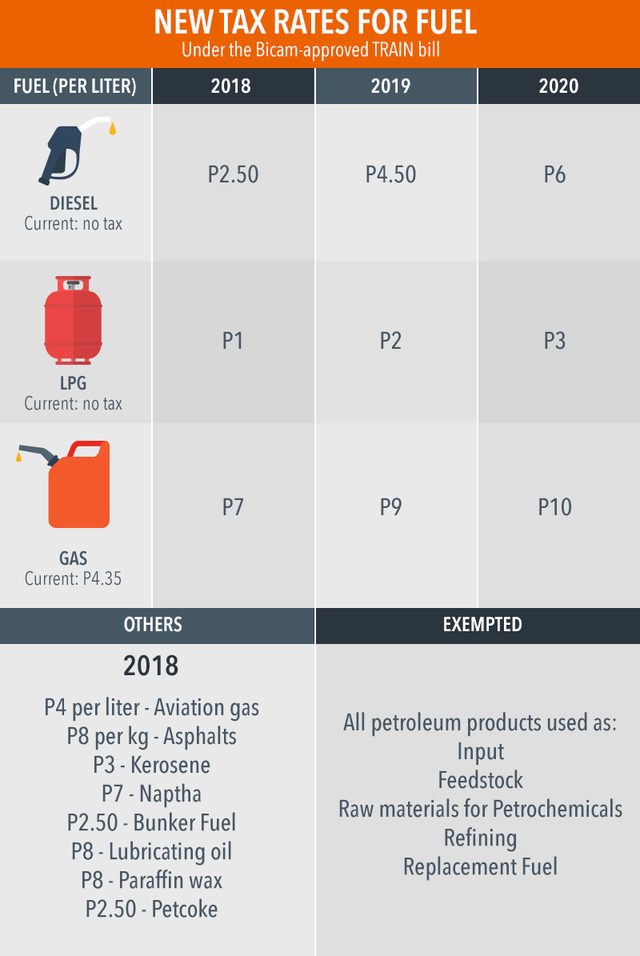SUMMARY
This is AI generated summarization, which may have errors. For context, always refer to the full article.

MANILA, Philippines— The commuting public can rest easy knowing that fares would possibly not go up, at least in the near future.
The Department of Energy (DOE) said that public utility vehicle (PUV) fares don’t need to be raised despite the increase in the price of fuel due to the tax reform law.
Filipino motorists began paying more for fuel at the beginning of this year chiefly because of the higher excise tax rates imposed on oil, as part of the the Tax Reform for Acceleration and Inclusion (Train) Law.
“We believe that based on the increase in the existing tax law, there should be no immediate need to raise PUV fares,” DOE Assistant Secretary Leonido Pulido III said in a briefing.
The DOE argued that the Train law has a built-in mitigating mechanism to soften the impact of the increase on oil prices on PUV drivers.
Pulido noted that a draft of the implementing rules and regulations (IRR) of the mechanism has already been created. “We are just waiting for the government agencies to come up with the inputs,” he explained.
The IRR should be published within 60 days of the effectivity of the Train law, or from January 1, 2018.
To further soften the impact for PUV drivers, the DOE is also in talks with private oil companies to provide, renew, or expand the discounts they give for oil to PUV drivers as part of a government-sponsored corporate social responsibility (CSR) program.
Pulido pointed out that there are already CSR programs where oil firms are giving discounts ranging from P0.50 to P1 per liter for fuel to PUV drivers.
“We want to expand it further and increase [the discounts] if possible. There are 1,000 gas stations involved and we are looking at to increase that number,” he said.
Finally, the DOE noted that a similar situation happened in 2014 when the price of diesel – used by the majority of jeepneys – kicked up to P46.96, but the price of fares did not go up.
The DOE added that correlated data between 2014 and 2016 showed that the increase in the price of oil did not have a significant impact on the transport fares or on rice, another consumer staple.
“I think the logic there was that there were already mitigating mechanism given by the government as well as discounts given by oil companies to PUV drivers,” Pulido said.

Preventing unscrupulous activities
The DOE also noted it has taken “all available and necessary steps to ensure that the Train law is implemented properly.”
Under a DOE directive, oil firms were told to impose excise tax rates under Train only when the stocks of finished oil products had been fully exhausted by the projected date of January 15.
Pulido said that the government agency had been continuously monitoring the industry to ensure this, and had responded to reports of some early implementations of the Train law by some gas stations.
The DOE estimated that these practices could have resulted in P2.649 billion worth of petroleum gas and P58.4 million for liquid petroleum gas (LPG) in taxes being improperly collected.
“To emphasize, the DOE has saved the consuming public approximately P2.7 billion pesos in what could have been improperly collected rates,” Pulido said.
The DOE offical added that the agency also issued show cause orders to 22 gas and LPG retailers for implementing the tax early, which include both large and small oil firms. – Rappler.com
Add a comment
How does this make you feel?
There are no comments yet. Add your comment to start the conversation.